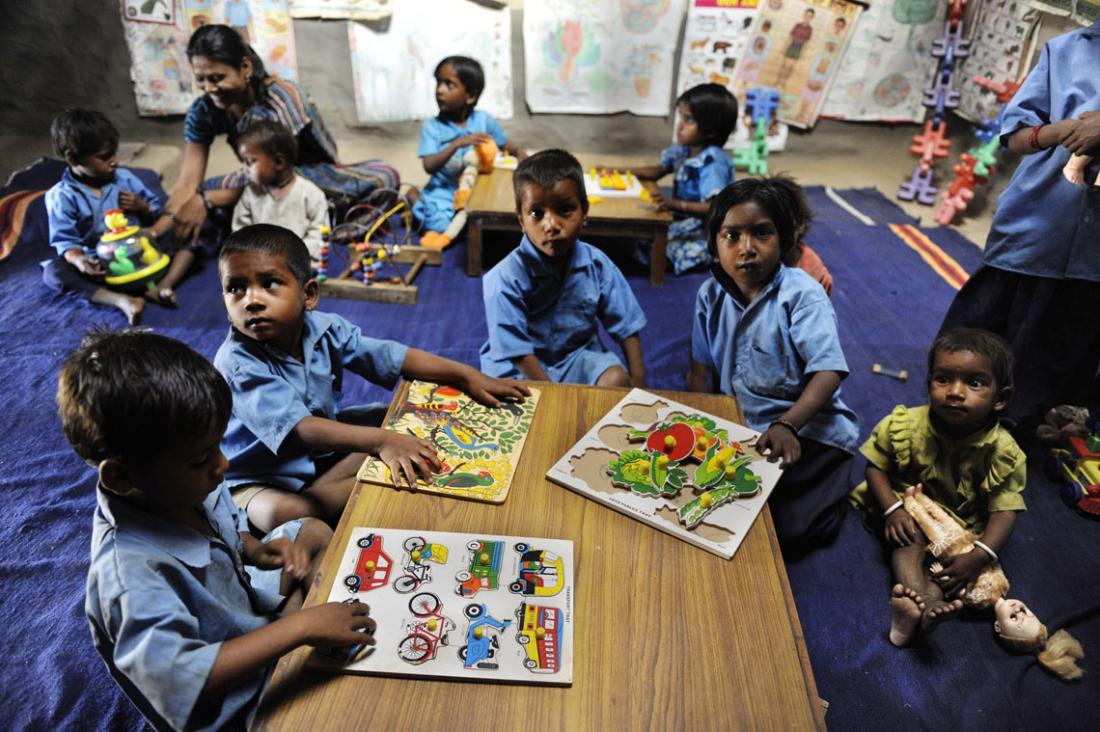Access to day care for children is often said to increase opportunities for women, particularly in low-income communities.
Access to day care for children is often said to increase opportunities for women, particularly in low-income communities. It can reduce barriers to participation in the workforce and generate income opportunities. While there are governmental and non-governmental organizations working on initiatives to improve access to affordable and reliable day care, there is a lack of evidence on the effects of such programs.
Arijit Nandi and his colleagues at McGill University and the Institute for Financial Management and Research in India are keen to change this. Their three-year-long study in rural communities in the Udaipur District in Rajasthan, supported by Canada’s International Development Research Centre (IDRC), will follow more than 3,000 mothers in 160 village hamlets. The mothers have children between the ages of one and six. Their hamlets were randomly assigned to receive a day care centre or serve as the control group with no centre for the duration of the trial.
The day care centres, or balwadis, operated by the local non-governmental development organization Seva Mandir, provide childcare, nutritious food, basic medicines and preschool education. The mothers were surveyed at the start of the program and will be surveyed again one and two years later, with a focus on both social and economic outcomes—such as women’s economic status and opportunity, women’s empowerment, and children’s educational attainment—and primary health outcomes, such as the women’s mental health and their children’s nutritional status.
India currently lacks a cohesive system of day care services, despite efforts in the last decade to expand financial assistance for public day care and nutrition centres. Problems include unreliable or insufficient opening hours, poor training of staff, absenteeism and substandard facilities.
It usually falls to women to provide childcare, so limited access to day care represents a barrier to paid employment. Women who have jobs often need to bring their children to work, leave them at home without appropriate supervision or entrust older siblings to care for them.
Although some studies have examined the impacts on women’s economic opportunities and show generally positive effects on employment and hours worked, very few have looked at the impacts on other household members.
The researchers believe their findings could help improve programs run in India and in other low-income countries where women face similar barriers to economic and social growth; strengthen the capacity of women in the labour force; and support non-governmental organizations focused on alleviating poverty and improving gender equality.
Further information
Arijit Nandi
E-mail: [email protected]
Institute for Health and Social Policy
McGill University, Canada
Edgard Rodriguez
Email: [email protected]
International Development Research Centre



